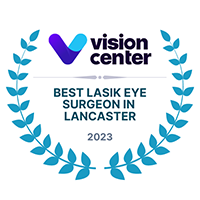Do you know the differences between an ophthalmologist, an optometrist, and an optician? One is a licensed medical doctor, which is an ophthalmologist.
They are licensed to diagnose eye diseases. They also perform eye surgery.
One is a licensed doctor of optometry. They are licensed to diagnose and prescribe treatment for eye diseases.
They are
not licensed to operate. The third is a licensed optical pharmacist. They fill prescriptions for eyeglasses, bifocals, contact lenses, and eye medications.
How do you know which one is right for you? Keep reading to learn more and to understand the differences between them!
Ophthalmologist (MD)
An ophthalmologist is a licensed medical doctor. They have gone through medical school.
They also completed a residency program. They have a medical license which allows them to diagnose eye diseases. They are also licensed to perform eye surgery.
An ophthalmologist is at the top of the medical eyecare pyramid. They can diagnose and treat all eye conditions, meaning things like vision loss, cataracts, and glaucoma. They can also perform procedures like LASIK and cataract surgery.
Many ophthalmology practices have one or two residing MD physicians that perform eye surgeries. They may also have an optometrist (OD) that handles vision diagnosis and prescription treatment.
Optometrist (OD)
You most likely see an optometrist for your eyecare needs. They are licensed as doctors of optometry. They can examine your eyes as well as diagnose any health or vision conditions.
The optometry office you go to may have one or two ODs who see patients. They may also have a friendly staff of eye care technicians.
Your optometrist will examine your eyes and write you a prescription for glasses or contact lenses. Their eye care technicians will help get you fitted for glasses and contact lenses.
Some optometry practices also have their own lab. This lab is like an optical pharmacy.
An optician will run the lab and fill your prescription for glasses or contacts. They will also fill any prescriptions for eye drops or other optical medication.
Optician
An optician is the most specialized of the three. They are not licensed medical doctors or doctors of optometry.
Instead, an optician specializes in optical prescriptions. This includes eyeglasses, bifocals, and contact lenses.
They also fill prescriptions for eye drops and other optical medications.
Optician offices range in size. They may be a part of a larger ophthalmologist or optometrist practice.
You can think of an optician as an optical pharmacist. They fill the prescriptions written by your ophthalmologist or optometrist. They are experts when it comes to prescription glasses and contact lenses, and other prescription eyecare needs.
Now you should understand the differences between ophthalmologists, optometrists, and opticians. This makes it easier to know which one you need to see.
Remember that only an ophthalmologist can perform eye surgeries. An optometrist can diagnose and prescribe treatment for eye diseases, but cannot operate. An optician is your go-to eye optical pharmacist.
Know that it’s been a while since you last saw your eye doctor or ophthalmologist? Chesen Laser Eye Center in West Reading, PA can help! Schedule an appointment with one of our talented eye doctors today!






